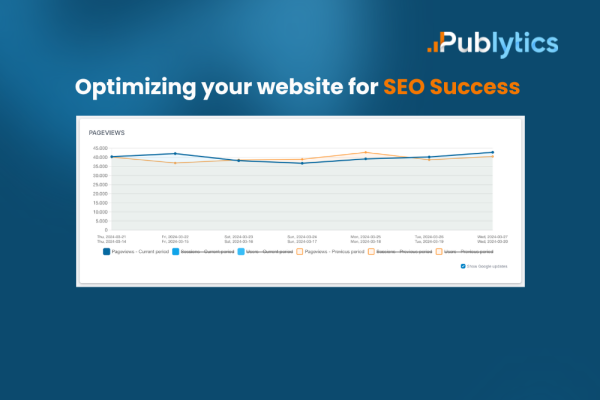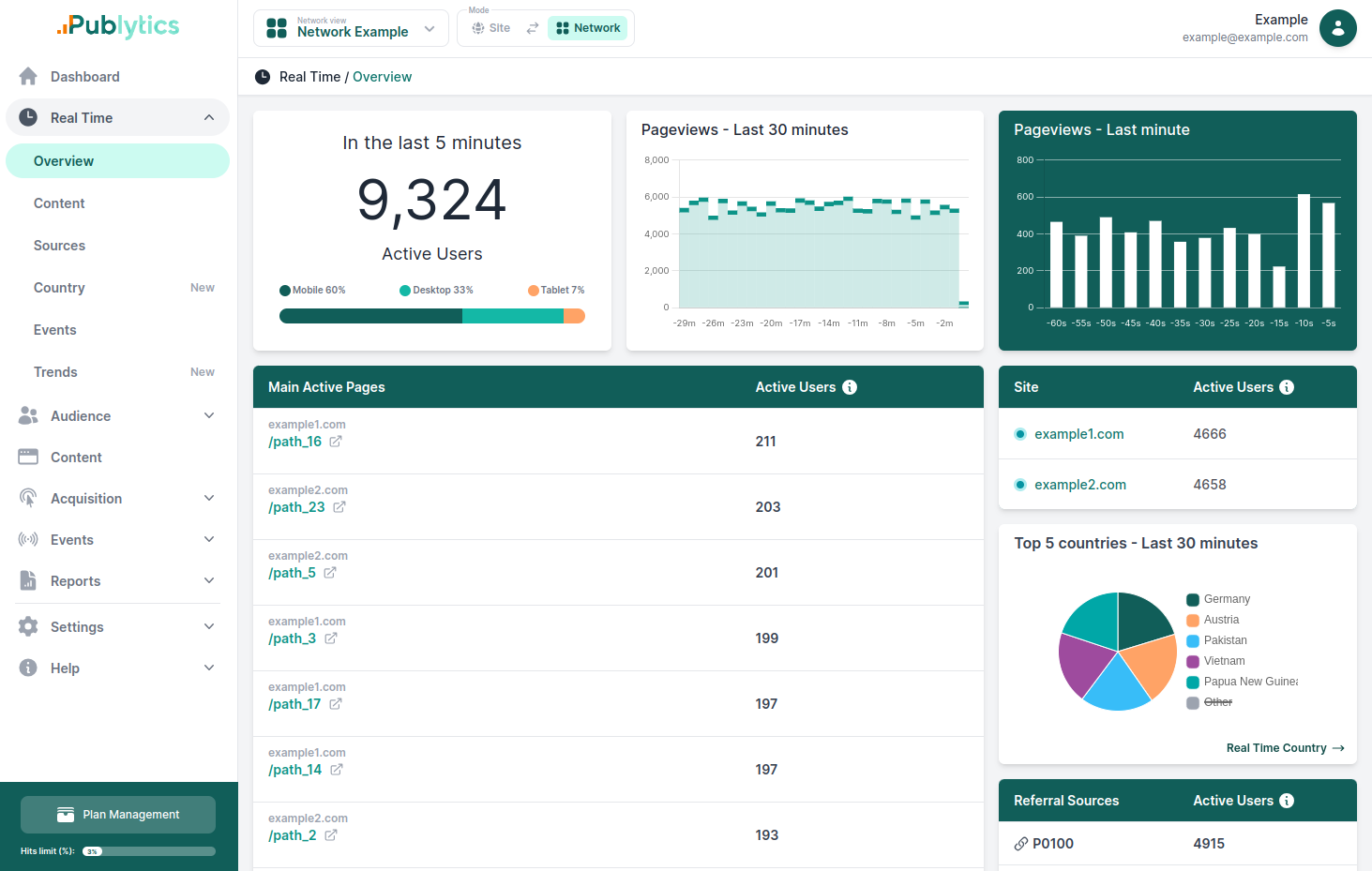Strategies for Optimizing Your Website for SEO Success in 2024
Nov 28, 2023 | Author: Info Publytics

Search Engine Optimization (SEO) plays a pivotal role in making your website more visible and accessible to users. Here's a beginner's guide to help you optimize your website for better search engine rankings.
SEO is the art and science of optimizing your website to rank higher on search engine results pages (SERPs).
Owning a website is comparable to having a storefront in the heart of a bustling city. However, just like a physical store needs foot traffic to thrive, your website requires digital visitors to succeed. This is where Search Engine Optimization (SEO) comes into play as the catalyst that can boost the discoverability, visibility, and overall success of your online presence.
The benefits of investing time and effort into improving your website's SEO are vast and impactful. Here's a checklist of essential areas to address for enhancing your website's SEO:
- Keyword Research:
Start by identifying relevant keywords that are associated with your content or business, you can use tools like Google Keyword Planner or SEMrush to discover keywords that your target audience is likely to search for. Incorporate these keywords naturally into your website's content, titles, and meta descriptions.
- Content Quality:
Search engines prioritize content that is relevant, informative, and engaging. Regularly update your website with high-quality content that addresses the needs of your audience. Focus on creating valuable and shareable content that your audience will find useful.
- Optimize Meta Tags:
Meta tags, including title tags and meta descriptions, play a crucial role in SEO. Craft compelling and relevant titles that include your target keywords. Write concise and enticing meta descriptions that encourage users to click on your link when it appears in search results.
- Create an XML Sitemap:
A sitemap helps search engines understand the structure of your website. Creating an XML sitemap and submitting it to search engines like Google can improve the indexation of your pages, making it easier for search engines to crawl and rank your content.
- Optimize Images:
Large, unoptimized images can slow down your website, affecting both user experience and SEO. Compress images before uploading them, use descriptive file names, and include alt text to help search engines understand the content of your images.
- Mobile Optimization:
With the increasing use of mobile devices, having a mobile-friendly website is essential. Google prioritizes mobile-friendly sites in its rankings. Ensure that your website is responsive and provides a seamless experience across various devices.
- Improve Website Speed:
Users expect fast-loading websites, and search engines take site speed into account when determining rankings. Compress images, leverage browser caching, and consider using Content Delivery Networks (CDNs) to enhance your website's loading speed, use a web analytics tool that has a lightweight tracking code, such as Publytics, that has one of the lightest on the market.
- Build Quality Backlinks:
Backlinks, or links from other reputable websites to yours, are a significant ranking factor. Focus on building high-quality, relevant backlinks through guest posting, social media promotion, and networking within your industry.
- Use Social Media:
While social media signals may not directly impact search engine rankings, a strong social media presence can contribute to increased visibility and traffic. Share your content on social platforms to reach a wider audience.
- Regularly Monitor and Analyze:
Use tools like Publytics and Google Search Console to monitor your website's performance. Analyze user behavior, track keyword rankings, and make adjustments to your strategy based on the data you gather.
By implementing these basic SEO strategies, you can enhance your website's visibility and improve its chances of ranking higher in search engine results. SEO is an ongoing process, and staying informed about industry trends and algorithm changes is key to maintaining and improving your website's search rankings over time.
Recent Posts
-
Publytics & qiota: The integration of analytics and monetization for publishers
Feb 18, 2026 | Author: Info Publytics
-
Enhancing Data Privacy in Web Analytics
May 13, 2025 | Author: Bruno Cazzaniga
-
How to Track Logged-in Users Without GA4 and Optimize Your Strategy
Mar 31, 2025 | Author: Bruno Cazzaniga
-
Track Article Author: How to Measure Content Creation Performance
Mar 14, 2025 | Author: Bruno Cazzaniga
-
Why Your Multi-Sites Deserve a Unified Dashboard
Feb 26, 2025 | Author: Bruno Cazzaniga
Start monitoring your websites in few seconds No credit card required!
Start monitoring your websites in few seconds


